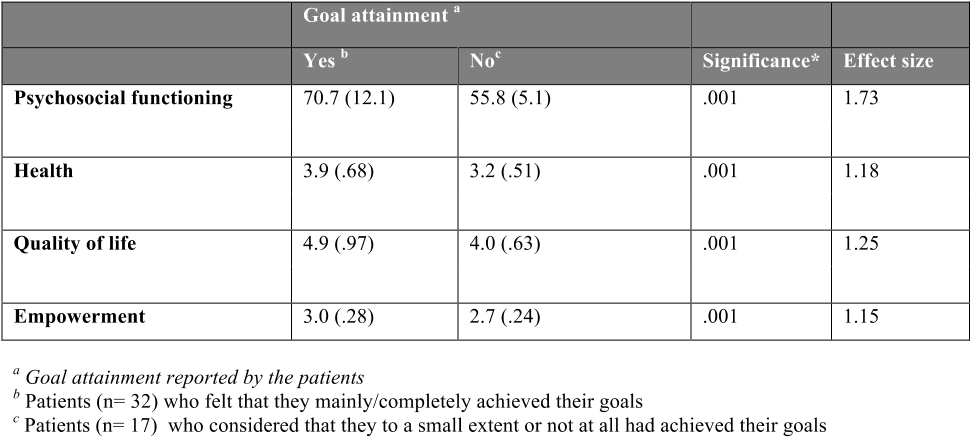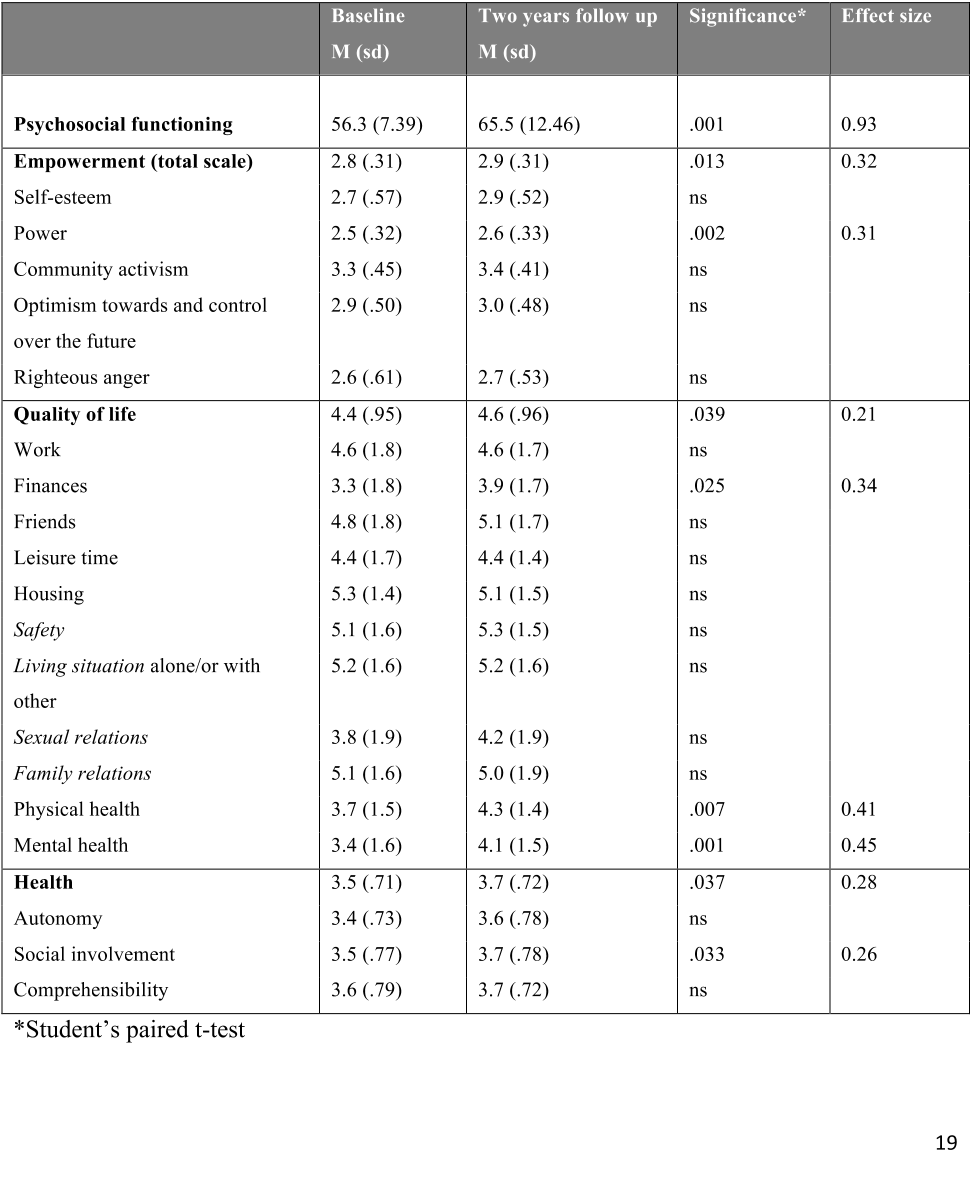4"
"
Background
A focus on psychiatric rehabilitation in order to support recovery among persons with severe
mental illness (SMI) has been given great attention in research and mental health policy, but
still lacks implementation in clinical practice in a broader perspective [1] [2]. The
development of mental health systems in Sweden have in recent decades been characterized
by a shift from traditionally hospital-based care to community-based care [3]. However,
moving toward a recovery-oriented approach takes time and presents several challenges for
mental health services [4]. With the increasing emphasis on an evidence-based practice and
research findings which confirm that people with SMI can recover from their illness [5] there
is a promising future for a further focus on recovery-oriented mental health care services [2].
!
The development of new models for psychiatric rehabilitation have resulted in a number of
intervention programs designed to improve health, social functioning and the quality of life of
persons with SMI. Common elements of these programs are that they offer extensive and
person-centred support aimed at strengthening the person’s ability to take responsibility for
their lives and thereby improve their quality of life [6]. Most programs include interventions
aimed to improve social skills, to create opportunities for independent living, to get persons
into work and actions to achieve a meaningful leisure time. The most common rehabilitation
oriented models are the Fountain House model of psychiatric rehabilitation [7], case-
management [8] [9], assertive community treatment (ACT) [10] [11] [2] and supported
employment (SE) [12]. Both ACT [13] [14] and supported employment according to the IPS
model [12] [15] have been identified as evidence-based practices that support people with
severe mental illness. Despite the potential impact of psychiatric rehabilitation on wellbeing
and health, there is a lack of research regarding the model called Psychiatric Rehabilitation
Approach from Boston University (BPR)
1
[16] [17] although it is established in clinical
practice in a number of countries. The BPR model has been investigated in some empirical
studies from United States [18] [19] and in a few studies from European countries [20-23].
Four of these studies used a randomized controlled design [18] [19] [22] [23]. Swildens et al
[22] showed that the BPR was effective in supporting persons with SMI in societal
participation and to achieve self-formulated goals, but no effects were found regarding social
functioning, needs for care, and quality of life. Rogers, Anthony, Lyss and Penk [18] found no
significant differences between the intervention group and a control group regarding
"""""""""""""""""""""""""""""""""""""""""""""""""""""""""""""
1
"Sometimes "called"Choose–Get–Keep Model (CGK)"













